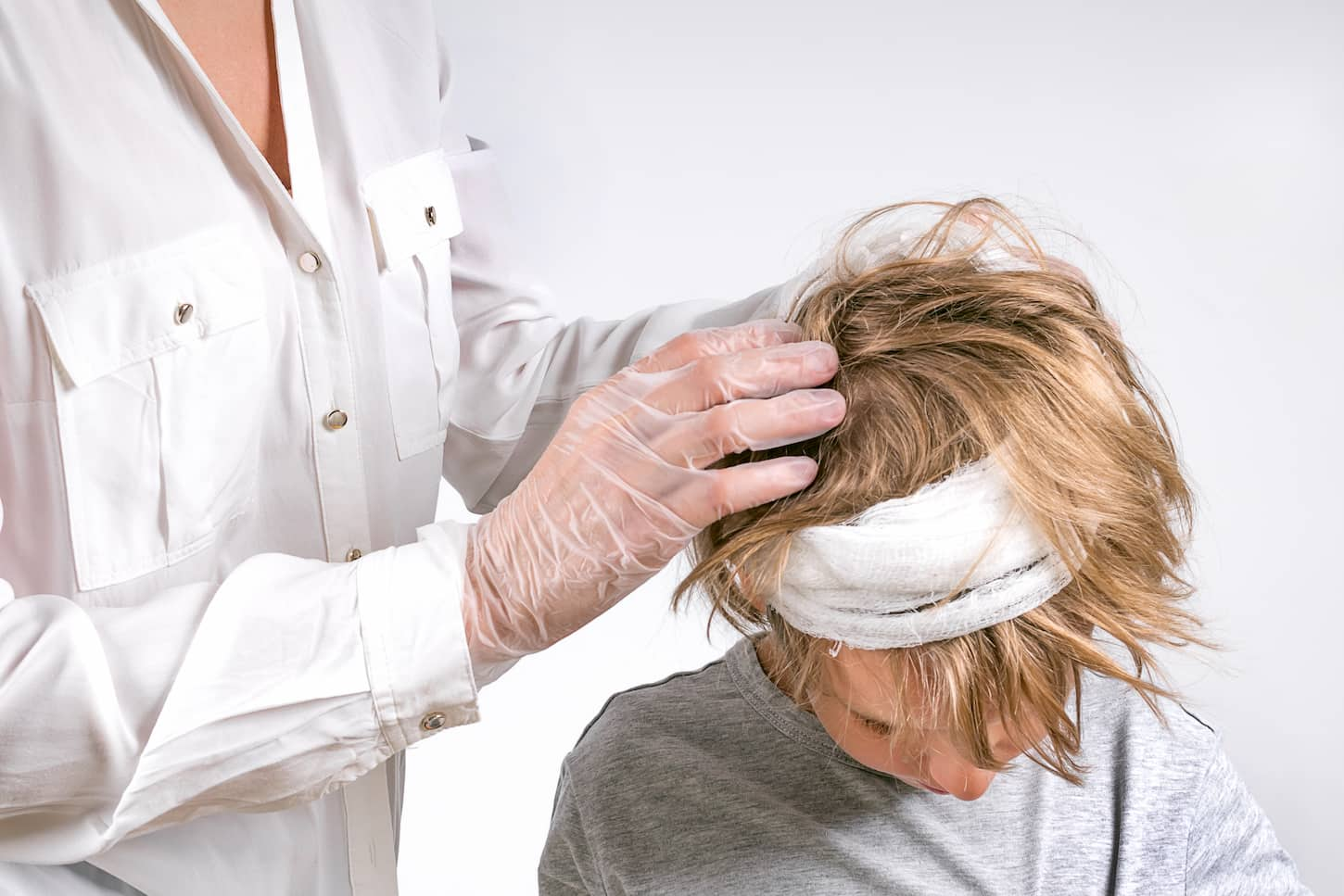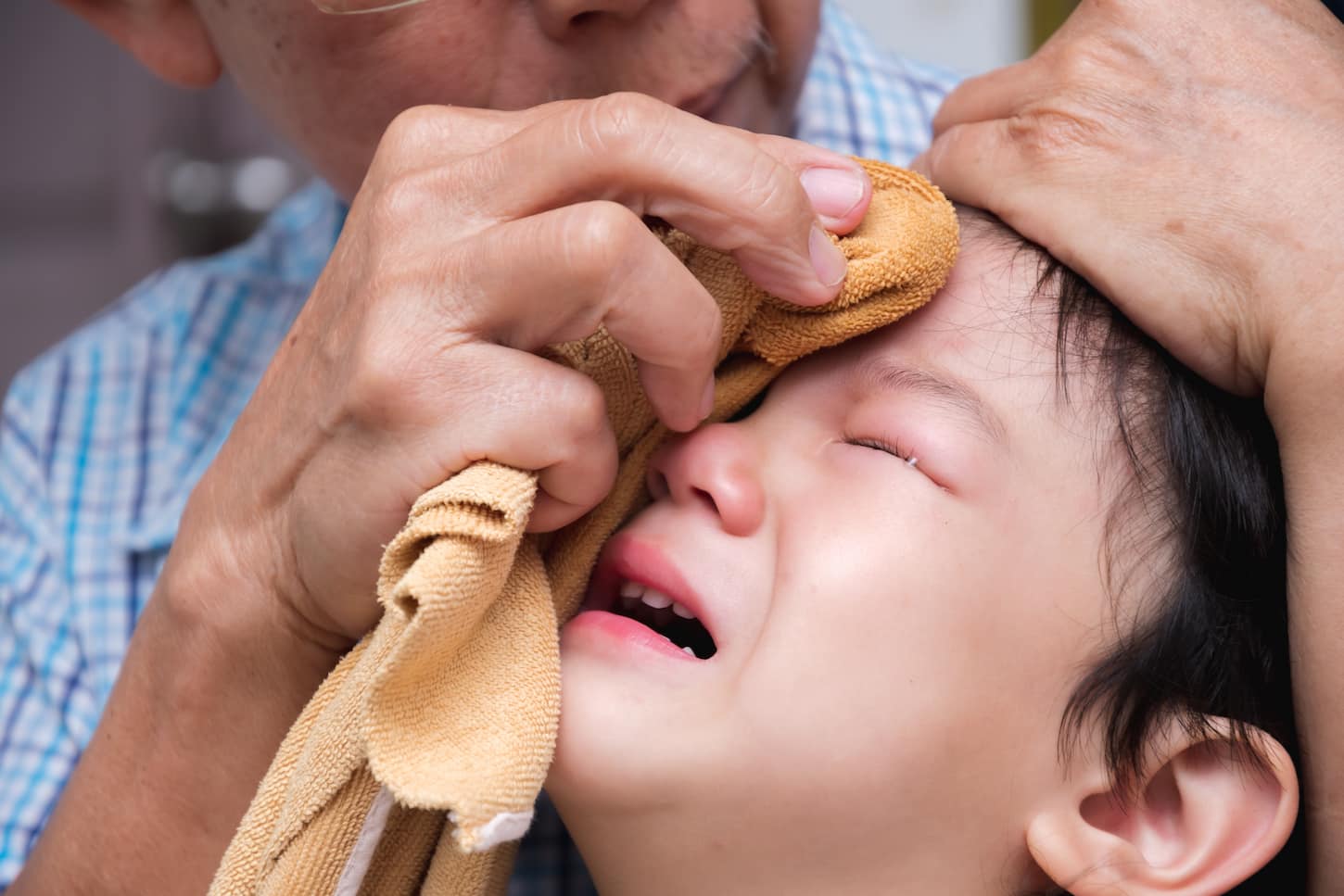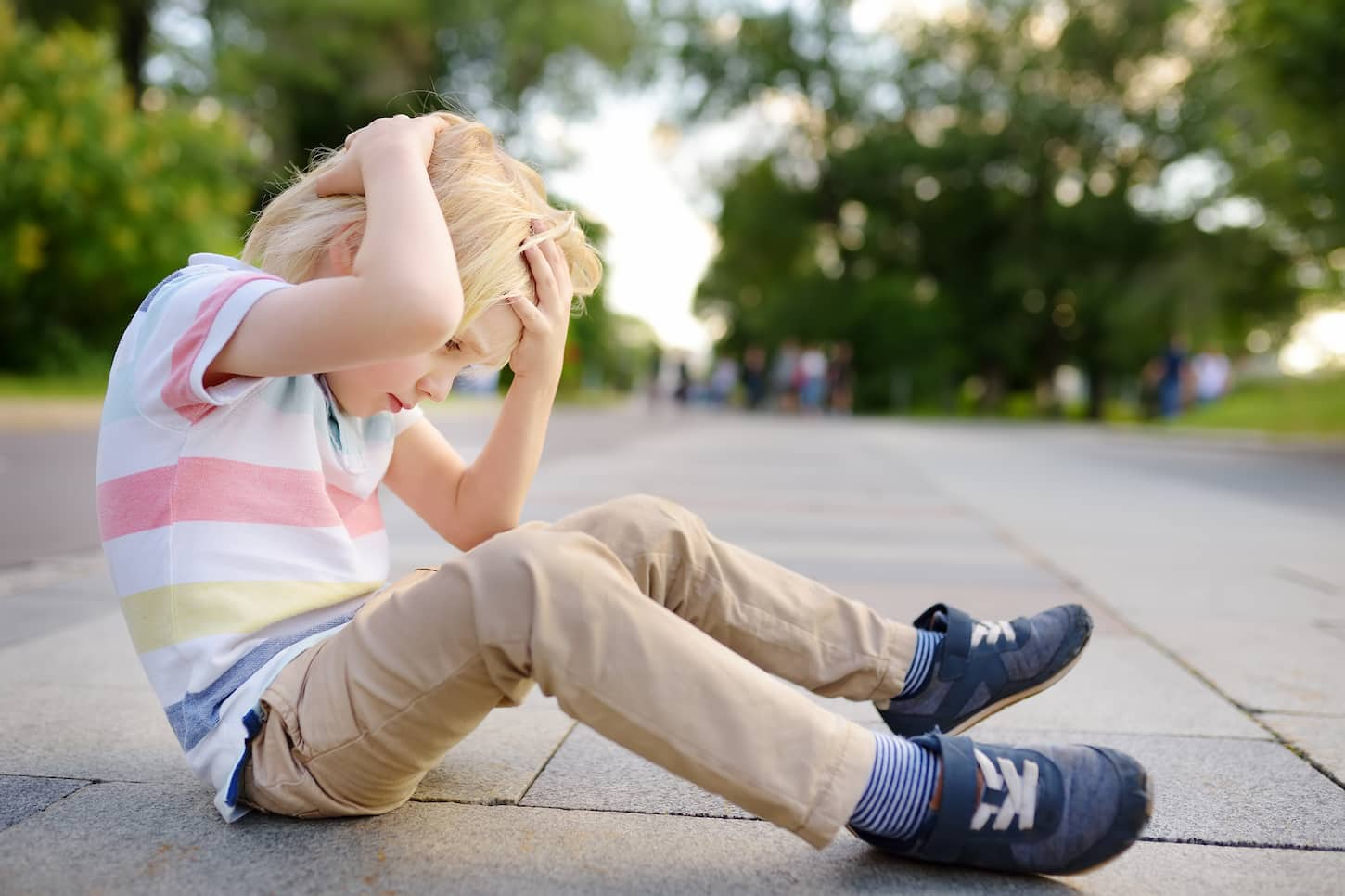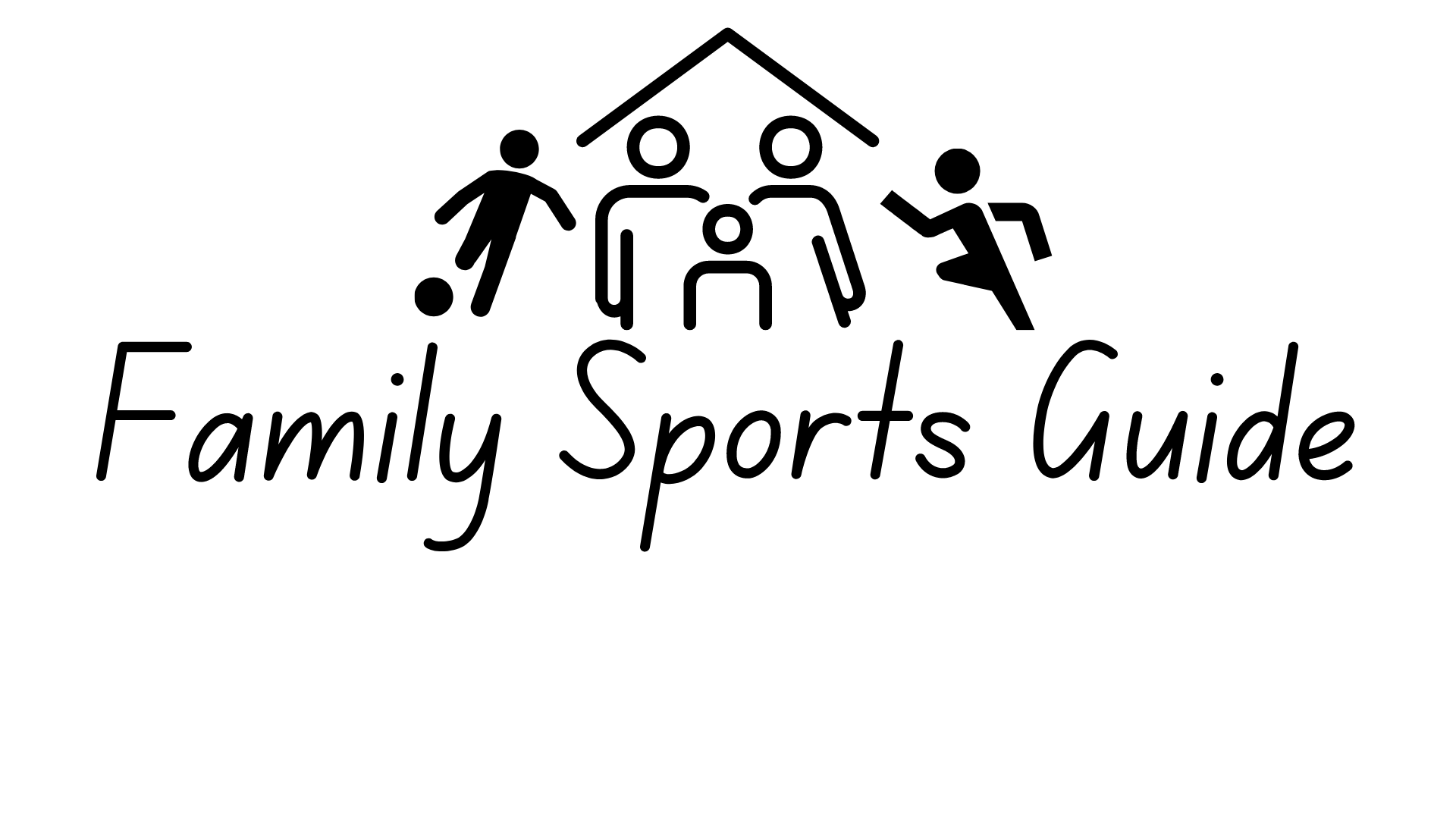Parenting is rewarding but also causes anxiety, especially when children injure themselves. Kids are accident-prone and often fall and bump their heads – they can also get hurt playing and participating in sports. If a child hits their head, how do we tell if they have a concussion?
Parents can tell if a child has a concussion if they pass out, have a headache, vomit, or are disoriented or wobbly on their feet after a head trauma. Concussion symptoms can occur hours or days after the injury and may affect a child’s mood and sleeping patterns.
Concussions usually aren’t fatal, but failure to notice symptoms and treat them accordingly can have long-term negative health implications. Children are more vulnerable to concussions than adults because their brains are still developing.
As a parent, it’s crucial to recognize the early signs, so if you want to know if your kid has a concussion, look at the information below.

While I (Kimberly) am a registered nurse and a mom, I am not your nurse nor your mom. This article is for information only, in accordance with this site’s terms and conditions. Please talk to your healthcare provider for personalized advice.
What Is a Concussion?
A concussion is a mild Traumatic Brain Injury (TBI) caused by a blow to the head or body, which makes the head jolt back and forth (coup and contrecoup). If the brain moves, it can cause chemical changes, damage brain cells, and temporarily stop the brain from functioning correctly.
The skull is a hard shell that protects the brain, and it’s filled with spinal fluid, which supports and cushions the brain. A blow to the head or body can jolt it out of place, and in some cases, it can even crash against the skull.
The most common causes of concussions include falls, accidents, and sports injuries.
If you want to think about a concussion in its most simple way, here it is: A concussion is a brain bruise.
How Do You Test For A Concussion in Kids?
The main way to establish if a child has a concussion is by looking for symptoms. If they have symptoms after a fall or knock to the head, take them to a doctor who will do physical and cognitive tests to diagnose a concussion.
Let’s take a closer look at the symptoms of concussion and how you test for it in kids:
#1 – Testing for a concussion at home
We can’t diagnose a concussion at home, but if we know the symptoms, we can judge when to seek medical advice. I’ve listed the symptoms of concussion below. If a child has one or more of these symptoms after a fall or knock to the head – seek medical assistance.
- Slurred speech
- Stuttering
- Headaches
- Nausea
- Blurred vision
- Confusion
- Memory loss of the incident
- Slow responses
- Dizziness
- Trouble walking and balancing
- Light sensitivity
- Noise sensitivity
- Drowsiness
- Mood changes
- They don’t feel right
If they have any of the following symptoms, we must take them to the ER immediately:
- Passing out
- Seizure
- A painful headache that gets worse
- Continuous vomiting
- If they have fallen from higher than about 3 feet (a yard or a meter)
Baseline Testing
Many schools and sports clubs insist on Baseline concussion testing. Baseline testing is when a child does a cognitive test on the computer to establish their normal brain function. If the child has a head injury during sports, they can retake the test.
The test is compared with the original results to see if the brain function is impaired. If they score lower on the test, this indicates a concussion.
#2 – Testing for a concussion by going to the doctor
When we take a child to the doctor with a suspected concussion, first, the doctor will ask for details about the injury, like when and how it happened. If the doctor suspects a concussion, they will perform cognitive and physical tests on memory, reflexes, balance, and coordination.
In some cases, they may recommend a CT scan or MRI, but this is rare because a concussion doesn’t always show on these scans.
Behavior and mood changes are common signs of a concussion that doctors won’t pick up on because they don’t know the child. As parents, we will recognize these symptoms more than a doctor, so always tell a doctor about changes in the child’s mood and behavior.

How Do I Know If My Child Has A Concussion After Hitting His Head?
Parents can tell if their child has a concussion after hitting their head if they have symptoms. However, symptoms do not always occur immediately, so we must monitor their behavior, moods, and sleep patterns in the following days.
Sometimes concussion symptoms don’t occur until hours or days after the trauma.
If a child has trouble sleeping, concentrating, develops headaches, or feels unwell, sad, or anxious in the days following a head trauma, these could be signs of concussion.
Parents or caregivers must seek medical attention if their child has symptoms in the days after an accident.
If the blow has knocked the child out, there is a strong chance they have a concussion, though they can still have a concussion if they don’t get knocked out. Loss of consciousness only occurs in ten percent of concussion cases.
If the child is happy and acting normally after a blow to the head, there’s usually no need to worry about a concussion. However, if the impact was severe, and they don’t have symptoms, make them rest and stop them from playing sports because symptoms don’t always occur immediately.
How Do I Check For A Concussion As A Parent?
Parents can check for concussions by monitoring symptoms. Ask the child how they feel, if they have headaches or nausea, and make sure they can stand, walk and talk ok. Young children cannot verbally tell us how they feel, so we must be extra observant with toddlers and babies.
Young children can’t tell us about their symptoms, so we must monitor them closely for signs of concussion after a blow or fall. Babies might cry in pain or be more irritable than usual if they move their heads.
They might have excessive vomiting or a visible bump or bruise. In toddlers, behavior changes, headaches, vomiting, excessive crying, or a loss of interest in games and toys can be signs of concussion.
When in doubt, seek appropriate medical attention.
What Do Parents Need to Check for After a Child Hits Their Head?
After a child hits their head, parents should watch the child’s behavior, which should be a quieter version of normal. Parents should watch for signs of pain, headaches, or anything “off.” A healthcare professional should evaluate abnormal behavior, pain, or headaches. When in doubt, get help.
If a parent has training in looking at pupils, they can also check a child’s pupils for signs of concussion. If they are different sizes or larger than usual, this could indicate brain trauma. Most parents won’t have the training to watch for this. However, if there is a drastic change in pupils or one pupil is vastly different than the other, parents should seek appropriate medical care.
As well as checking for physical symptoms, such as vomiting and weakness, parents must also observe the child’s behavior and emotions. Anxiety, mood swings, and abnormal behavior can also indicate a concussion.
We should also check if the child can remember the event and if they can recall basic information, such as their address or birthday. If they usually can, but now they can’t, this can signify a concussion.
How Long Does It Take to Recover From Concussion?
Depending on a concussion’s severity, recovery can take a couple of weeks to a few months. In most cases, children make a complete recovery. Each concussion case is unique, and a physician will give us a recovery plan that will include lots of rest.
The brain needs rest to heal, and we must avoid overstimulating it with things like TVs, phones, tablets, and music. As symptoms improve, children can gradually get back to their regular activities.
They should start with gentle activities and slowly work their way up to sports. Always follow the physician’s advice when a child is recovering from a concussion.

How To Reduce the Risk of Concussion
To reduce the risk of concussion, ensure children wear appropriate safety equipment such as helmets for sports. Teach children about the dangers of concussion, tell them to be careful, and encourage them to practice good sportsmanship.
Once a child has had a concussion, they are more likely to get them again in the future. Repeated concussions can lead to long-lasting or permanent damage or more severe symptoms.
Key Takeaways and Next Steps
If a child has symptoms of a concussion, seek medical advice. Concussions can happen from a ground-level fall (literally falling from just standing there).
If a child has a fall or blow to the head, they may suffer a concussion, and we must monitor them for symptoms. Concussion symptoms include severe headaches, vomiting, disorientation, and poor physical and cognitive function. The timing of each of these is also a symptom.
If the child has a seizure, passes out for over two minutes, has an intense headache that is getting worse, or has fallen from over a meter high, take them to the Emergency Room (or Emergency Department) immediately. These can be signs of a severe concussion.
Concussion symptoms may not appear till hours or days after an incident. If a child has a severe fall or blows to the head, don’t let them continue with vigorous activity.
Make them rest and monitor them for symptoms in the following days. If your child has concussion symptoms in the days following an accident, get them checked out by a medical professional. That way, your doctor can outline a specific concussion recovery roadmap (based on evidence-based best practices and current concussion protocols) for your child.
This article is informational only and not intended as medical advice. If you have any doubt about whether your child has a concussion, always seek medical advice.
Resources
Learning from your own experiences is important, but learning from others is also smart. These are the sources used in this article and our research to be more informed as a family of sports nuts wannabes.
- Chaunie Brusie. (2016, March 9). Signs of Concussion in Children: When to Call the Doctor. Healthline. https://www.healthline.com/health/parenting/concussion-signs-children
- Concussion Signs and Symptoms | HEADS UP | CDC Injury Center. (n.d.). https://www.cdc.gov/headsup/basics/concussion_symptoms.html
- Concussions. (2017, December 18). Traumatic Brain Injury. https://www.vdh.virginia.gov/traumatic-brain-injury/concussions/
- Concussions (for Parents) – Nemours KidsHealth. (n.d.). https://kidshealth.org/en/parents/concussions.html
- FAQs about Baseline Testing | HEADS UP | CDC Injury Center. (n.d.). https://www.cdc.gov/headsup/basics/baseline_testing.html
- International Concussion Society. (2020, March 5). The Real Risk of Concussions. Concussion.org. https://www.concussion.org/news/the-real-risk-of-concussions/
- Sissons, C. (2018, June 22). Head injury: Symptoms, concussion, and treatment. https://www.medicalnewstoday.com/articles/322225
- The Royal Children’s Hospital Melbourne. (n.d.). Kids Health Information : Head injury – general advice. https://www.rch.org.au/kidsinfo/fact_sheets/Head_injury/
The author of this article is a Registered Nurse with 8 years of experience in a children’s hospital and trauma center emergency department. She has helped to treat countless children with head (and other) injuries.
Her best advice for parents worried about any injury is this:
If you’re worried, seek appropriate medical attention. If it’s an emergency, call 911. Doctors, nurses, and parents will put the child first and always.
Kimberly, RN BSN
